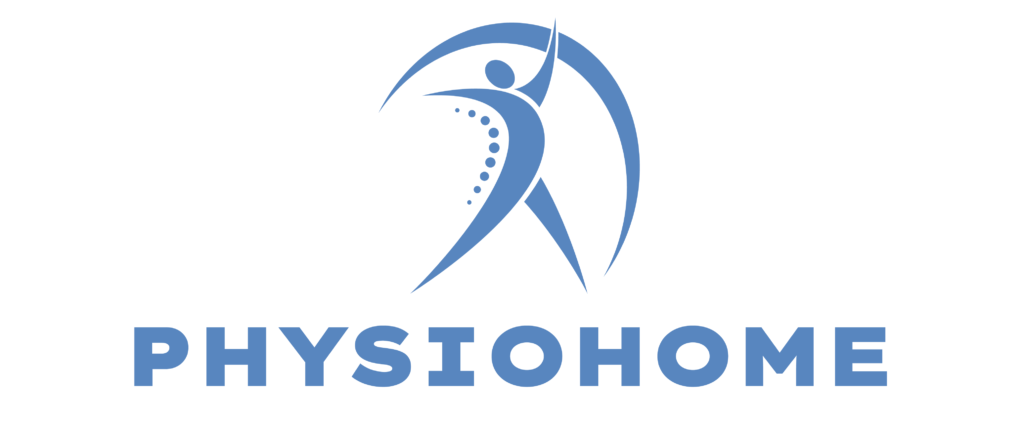Physiotherapy, often misunderstood and underestimated, plays a crucial role in enhancing the quality of life for countless individuals recovering from injuries, managing chronic conditions, or seeking to optimize physical performance. Despite its proven benefits, several myths and misconceptions about physiotherapy persist. Let’s debunk some of the most common ones:
Myth 1: Physiotherapy is only for athletes.

Reality: While physiotherapy is indeed beneficial for athletes recovering from sports injuries, its scope extends far beyond the realm of sports. Physiotherapists treat a wide range of conditions affecting people of all ages and activity levels, including chronic pain, post-surgery rehabilitation, neurological disorders, and musculoskeletal issues. For athletes, physiotherapy is indeed crucial for recovering from injuries like muscle strains, ligament tears, or joint dislocations. Physiotherapists work closely with athletes to rehabilitate injuries, restore strength and flexibility, and facilitate a safe return to sport. Beyond rehabilitation, they focus on injury prevention through personalized exercise programs, biomechanical assessments, and education on proper training techniques.
However, the benefits of physiotherapy extend well beyond the sports arena. For individuals with chronic conditions such as back pain, osteoarthritis, or neurological disorders like stroke or Parkinson’s disease, physiotherapy offers rehabilitative treatments aimed at improving mobility, reducing pain, and enhancing quality of life.
Myth 2: You need a referral to see a physiotherapist.
Reality: In many countries, including the UK and Canada, you can directly access physiotherapy services without a referral from a physician. Physiotherapists are primary healthcare providers trained to assess and treat musculoskeletal and movement disorders independently. However, some insurance plans or healthcare systems may require a referral for coverage purposes.
Physiotherapists undergo rigorous education and training to develop expertise in assessing and treating a wide range of conditions affecting the musculoskeletal, neurological, and cardiovascular systems. They utilize evidence-based practices to formulate personalized treatment plans tailored to each patient’s specific needs and goals.
Direct access to physiotherapy offers several advantages. It reduces delays in receiving care, which can be critical for managing acute injuries or conditions requiring early intervention. Patients can initiate treatment promptly, facilitating faster recovery and minimizing the risk of complications associated with untreated or improperly managed conditions.
Myth 3: Physiotherapy is painful.
Reality: Physiotherapists work with patients to manage pain, not exacerbate it. While some therapeutic exercises or techniques may cause temporary discomfort as part of the rehabilitation process, the overall goal is to reduce pain, improve mobility, and enhance function. Modern physiotherapy emphasizes patient comfort and tailored treatment plans.
Physiotherapists are highly trained healthcare professionals who employ a variety of gentle and effective techniques to address musculoskeletal, neurological, and cardiovascular conditions. They customize treatment plans based on each patient’s specific needs and tolerance levels, ensuring that therapies are both effective and comfortable.
Myth 4: Physiotherapy is only for rehabilitation after surgery or injury.

Reality: While rehabilitation is a significant aspect of physiotherapy, it also focuses on prevention and maintenance of overall health and well-being. Physiotherapists provide guidance on posture, ergonomics, exercise programs, and lifestyle modifications to prevent injuries and promote physical fitness and longevity.
Preventative Care:
Physiotherapists play a pivotal role in preventing injuries and managing chronic conditions before they require surgical intervention. Through personalized exercise programs, ergonomic assessments, and education on proper body mechanics, physiotherapy helps individuals maintain optimal physical health and prevent injuries related to overuse, poor posture, or repetitive strain.
Chronic Pain Management:
Physiotherapy offers effective strategies for managing chronic pain conditions such as arthritis, lower back pain, fibromyalgia, and neuropathic pain. Techniques like manual therapy, therapeutic exercises, acupuncture, and modalities such as heat or cold therapy are used to alleviate pain, improve mobility, and enhance quality of life.
Neurological Rehabilitation:
Physiotherapists work with patients recovering from neurological conditions such as stroke, traumatic brain injury, multiple sclerosis, and Parkinson’s disease. Rehabilitation focuses on improving balance, coordination, gait, and activities of daily living through specialized exercises, gait training, and neurorehabilitation techniques.
Cardiovascular Rehabilitation:
For individuals recovering from heart surgery or managing cardiovascular conditions like heart disease or hypertension, physiotherapy plays a vital role in cardiac rehabilitation. Exercise programs are designed to improve cardiovascular fitness, endurance, and overall heart health under the guidance of a physiotherapist.
Sports Performance Enhancement:
Physiotherapists collaborate with athletes of all levels to optimize sports performance and prevent injuries. They provide specialized assessments, biomechanical analysis, and customized training programs to enhance strength, flexibility, agility, and overall athletic performance.
Women’s Health:
Physiotherapy addresses women’s health issues such as pelvic floor dysfunction, urinary incontinence, prenatal and postnatal care, and musculoskeletal pain related to pregnancy. Physiotherapists offer specialized treatments including pelvic floor rehabilitation, therapeutic exercises, and education on optimal posture and movement during pregnancy and postpartum recovery.
Geriatric Care:
Physiotherapy plays a crucial role in maintaining mobility, independence, and quality of life for older adults. Physiotherapists address age-related conditions such as osteoarthritis, osteoporosis, balance disorders, and mobility limitations through tailored exercise programs, fall prevention strategies, and mobility aids.
Myth 5: Physiotherapy doesn’t work, and it’s just stretching and basic exercises.
Reality: Physiotherapy interventions are evidence-based and highly personalized. They encompass a variety of techniques such as manual therapy, therapeutic ultrasound, electrical stimulation, and specialized exercise programs tailored to each patient’s specific needs and goals. Research consistently supports the effectiveness of physiotherapy in improving outcomes and quality of life.
Myth 6: Physiotherapy is expensive and time-consuming.
Reality: The cost and duration of physiotherapy sessions vary depending on factors such as location, type of treatment, and insurance coverage. Many physiotherapy clinics offer affordable payment plans or accept insurance. Moreover, physiotherapists strive to achieve maximum benefits in the shortest possible time, focusing on efficient treatment strategies.
Myth 7: Anyone can perform physiotherapy exercises found online or in books.
Reality: While general exercise can be beneficial, physiotherapy exercises are tailored to individual needs, medical history, and specific conditions. Incorrect exercises or techniques can worsen existing issues or lead to new injuries. Physiotherapists undergo extensive training to assess, diagnose, and design personalized treatment plans based on clinical expertise and evidence-based practice.
Conclusion
In conclusion, physiotherapy is a multifaceted healthcare discipline that offers much more than commonly perceived. By dispelling these myths, we can better appreciate the value of physiotherapy in promoting recovery, restoring function, and enhancing overall health and well-being. Whether you’re recovering from an injury, managing a chronic condition, or striving to optimize your physical performance, consulting a qualified physiotherapist can be an invaluable step towards achieving your health goals. Contact us today at Physio Home, located in Ras Al Khaimah, United Arab Emirates, to discover how our experienced physiotherapists can assist you on your journey to better health and mobility.

